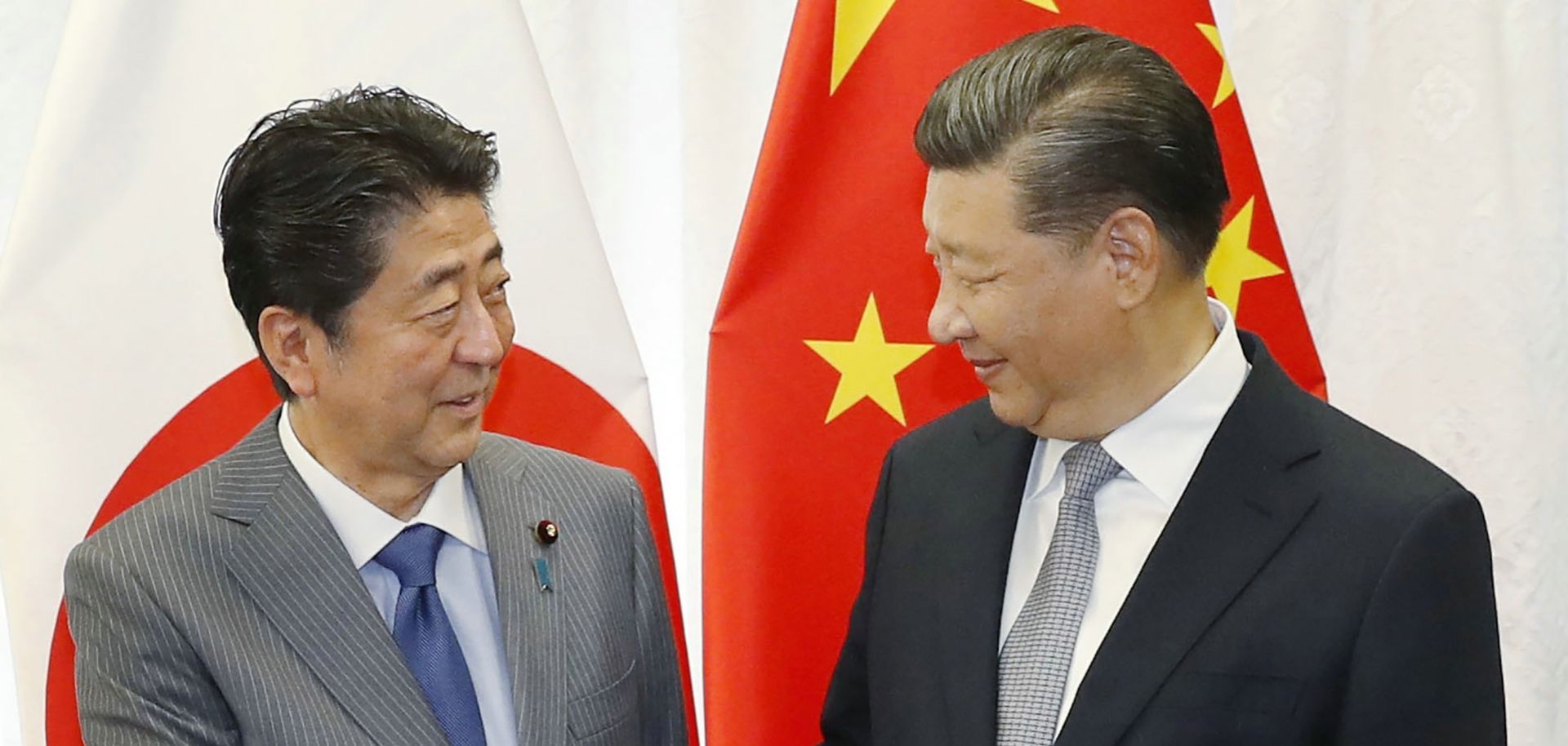COLUMNS
Japan's Relationship With China Evokes Cold War Memories

Oct 25, 2018 | 05:30 GMT

Japanese Prime Minister Shinzo Abe shakes hands with Chinese President Xi Jinping before a bilateral meeting in Russia during the 2018 Eastern Economic Forum. U.S. trade pressure on China and Japan is driving the two together to defend the liberal economic order from which they have immensely benefited.
(JIJI PRESS/AFP/Getty Images)
Highlights
- The histories and fortunes of Japan and China have mutually defined geopolitics in the Western Pacific for the past two centuries.
- The U.S.-Japan Cold War alliance dictated the degree to which Japan could reach out to China. With China-U.S. tensions on the rise once more, Japan risks being caught in the middle again.
- Prime Minister Shinzo Abe's landmark state visit is part of an effort to separate China-Japan relations from China-U.S. relations, allowing Japan to address its tensions with China without being entirely beholden to U.S. goals.
Subscribe Now
SubscribeAlready have an account?
